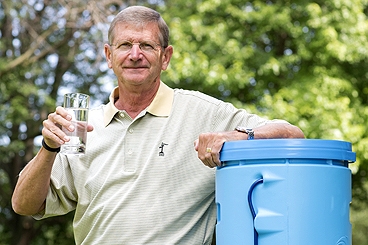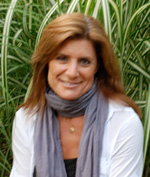Originally published in Crain’s Chicago Business

August 14, 2014
 John Schoch knows a thing or two about clay. He’s been CEO for 11 years of Profile Products LLC, a Buffalo Grove firm that mixes porous ceramic particles into playing fields. Made from a specific type of clay, the material soaks up water after, say, a golf course or Wrigley Field has been dumped with rain.
John Schoch knows a thing or two about clay. He’s been CEO for 11 years of Profile Products LLC, a Buffalo Grove firm that mixes porous ceramic particles into playing fields. Made from a specific type of clay, the material soaks up water after, say, a golf course or Wrigley Field has been dumped with rain.
In 2008, after chatting with a water management consultant, Mr. Schoch concluded his expertise might have a worldwide humanitarian use. He brought in a team of chemists, hydrologists and manufacturing designers to develop a modified ceramic particle that could filter out contaminants to provide safe drinking water in places where people lack access to it.
ProCleanse LLC, a subsidiary of Profile Products he formed five years ago, now has its product: a giant blue bucket lined with a proprietary blend of particles. Dirty water is poured into the top and gravity pulls the water through a strainer to catch debris. At the same time, silver, zinc and copper ions are released from the particles to neutralize bacteria and viruses. The device, which can hold up to 5 gallons of water and must be cleaned out a few times a year, requires no power, has no parts to replace and is expected to last 10 years.
ProCleanse received $4 million from Profile Products for development and testing. Each filtration device costs $200, but that works out to just one-tenth of 1 cent per quart of clean water when spread over the product’s lifetime, says Mr. Schoch, 64, who has spent his career in the chemicals industry.
Other purification products are available. But Mr. Schoch says his is better. One popular approach is chlorine tablets, “but chlorine gives off a bad taste and rotten-egg odor that no one likes,” he says. “Culturally, people don’t like to use it even though it will make water safer for their kids.”
Competing filtering devices cost no more but typically last just two to three years, says Chuck Chatowitz, a principal at Global Environment Technology Foundation, a Washington-based nonprofit that focuses on clean water access around the world.
Mr. Schoch is pitching his product to private organizations, service and faith-based groups and foreign governments, which in turn would distribute them to people in need. Rotary International clubs in Ecuador, for instance, have asked to buy 5,000 ProCleanse devices. He is working with clubs in the U.S. and the Guatemalan government to distribute 10,000 filters to at-risk families, too.
He also is pursuing a formal field test with 600 families in Ghana to demonstrate whether the product can meet relatively new, stringent World Health Organization standards. They include eliminating close to 100 percent of all harmful bacteria and viruses in the water.
“It’s not an easy marketplace to enter, nor is it easy to make money there,” Mr. Chatowitz says. “What’s unique about John and ProCleanse is their commitment to address these big issues surrounding clean water and access and their willingness to keep making improvements on their technology.”
– Judith Nemes

